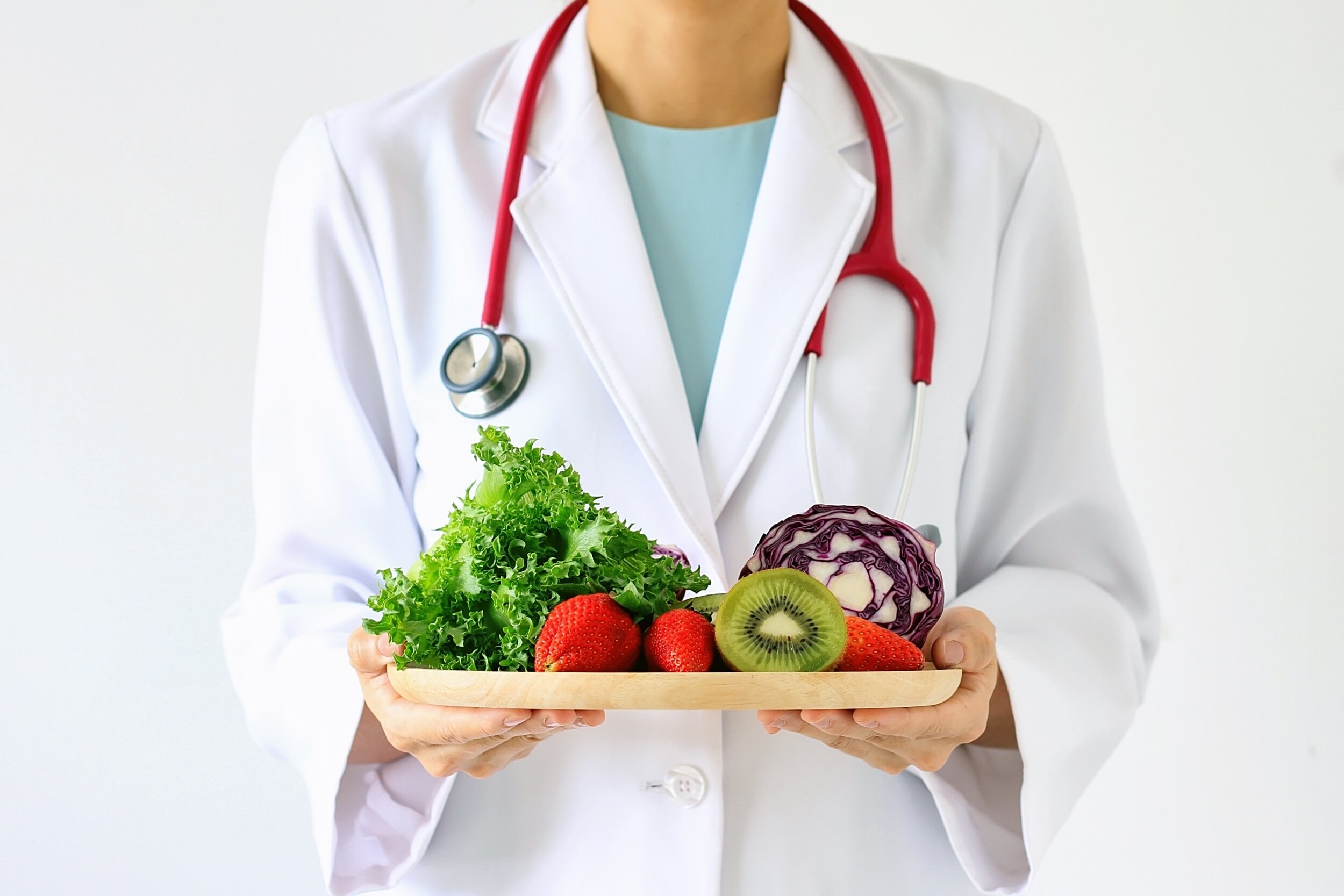At the end of June, Kroger announced that it received FDA approval to sell a home COVID-19 test, with anticipation of 60,000 units per month in the near term. That a supermarket is getting involved in national health concerns really should not be a surprise. More than any other lifestyle decision that we make, “what we eat” has the largest impact on our preventative healthcare. Now that the pandemic has put grocery into the innovation hotseat, why shouldn’t “supermarkets” be on the short list of players in the multi-trillion dollar American healthcare landscape? As grocery moves online, and digital consumption data becomes more important to business, grocers ought to be leaning hard into healthcare. It’s time grocers establish their rightful place in what is becoming the hottest space in business, before the tech giants and new direct-to-consumer (DTC) players edge all of the others out.
Americans are sick of being sick
Over 100 million Americans have high blood pressure, 122 million more have diabetes or pre-diabetes, and nearly 220 million Americans are either overweight or clinically obese. Not only are these chronic conditions major causes of premature death and the source of 90% of US health care costs, they also make sufferers vulnerable to threats like COVID-19. And the greatest contributor to chronic disease is, of course, the food choices we make.

A silver lining of the pandemic is that it abruptly forced consumers to think more about preventative health. In a survey of 23,000 consumers across 18 countries in May, 2020, 63% said that they became significantly more health conscious in response to the virus. 80% said that they would reduce sugar intake and eat healthier, immunity-boosting foods. This has helped accelerate an existing trend toward personalized health-conscious food selection which has been two decades in the making. Organic food sales have grown into a $55 billion dollar market. The number of Americans identifying as vegan expanded 3,000 percent over the past 15 years. The ketogenic diet is on track to exceed $15 billion in market value by 2027. Allergy-safe foods, gluten-free selections and other health-conscious choices account for billions more. When Nielsen surveyed grocery shoppers around the world on home dining preferences, 70% said that they actively make dietary choices to help prevent adverse health conditions. As this trend towards eating healthier continues, grocers are in a unique position to make a massive impact for good, along with a tidy profit for themselves.
The role of food shopping in preventative healthcare is something that healthcare providers already know. In 2014, Zuckerberg San Francisco General Hospital launched a therapeutic food pantry where patients receive “prescriptions” for 25 pounds of healthy, restorative food every two weeks. St. Joseph HOAG Hospital, in Orange County, California, runs a “shop with your doc” program where MD’s and nutritionists accompany patients to help them select healthy choices at the local Ralph’s Supermarket. And, in a major boost to the recognition of the role of food providers in healthcare, Congress established a pilot program this year to include medically tailored home-delivered meals within the scope of Social Security.

Healthcare, technology, and consumer choices are converging
Meanwhile, major technology companies are investing heavily in healthcare, preparing to leverage their digital strengths for the coming revolution of precision medicine. Google acquired Fitbit for $2.1 billion dollars and has acquired access to health data of tens of millions of consumers through other deals. Apple is gobbling up health technology startups so fast and furiously that Morgan Stanley predicted that health will account for 25% of the tech giant’s revenue by 2027. Facebook tried to acquire patient data from hospitals nationwide in 2018, and is now investing in its own preventative healthcare app. And of course Amazon—owner of Whole Foods, I need not remind anyone—owns PillPack and Health Navigator, amongst others, and invested a staggering $3.5 trillion dollars into healthcare—in 2018 alone.
The die has already been cast to see a convergence of technology, grocery, and healthcare. COVID-19 sent grocers scrambling to invest in retail tech that would allow them to serve shoppers effectively online and in store. While online AI, smart carts, and other retail technology are reshaping grocery, there are serious opportunities in healthcare that supermarkets should get out in front of. If they don’t, it won’t be long before Amazon and other players springboard off their health assets to encroach further into the food space. (It has already been speculated that Amazon is preparing Alexa to be a “virtual nutritionist” that will help users select products at Whole Foods.)
A few healthcare ideas that supermarkets can move on today
1. Make healthy recommendations: Instead of making low-sugar and heart-healthy choices a quaint afterthought, why not retain nutritionists on staff the way that sommeliers are, to offer guidance, and implement choices? This could even incorporate the latest food science for longevity and chronic disease reversal. Halla is doing something like this online with our partner EatID. Online grocery shoppers can now select personal health preferences that prioritize foods to accommodate allergies, health conditions, dietary restrictions, weight-loss goals, and other healthy eating choices.
2. Build healthy private labels: Why not build a private brand around health, so that shoppers can easily recognize and select your pre-vetted line of delicious low-sodium, low-carb, heart-healthy, organic, or vegan food options. Shelf signage and online product details could call out health benefits so that health-conscious shoppers do not have to squint to decipher tiny nutrition labels.
3. Partner with healthcare players: Supermarket chains could go much further than that—even becoming central healthcare players. Why not partner with insurance companies and corporate wellness programs to incentivize and reward shoppers for making healthy choices? There are now tens of millions of American employees in corporate wellness programs. Insurers are eager to move from out-dated actuarial tables to real-time lifestyle data to determine premiums and reduce payouts. Grocers would make natural partners.
4. Subsidize DTC testing: Some grocery chain should strike a deal with a direct-to-consumer health player like Viome or Thryve to offer subsidized gut flora testing, and like DNAFit or XCode Life to determine genetic and epigenetic characteristics. Can you imagine the loyalty that you could get by offering food and supplement choices custom-tailored to your shoppers’ personalized microbiome, genome, and epigenome?
Given how fundamental our food choices are to health, the people who deliver our food should have a much bigger seat at the healthcare table. The FAANG companies have their eye on healthcare. It won’t be long before Google, Apple, and Facebook follow Amazon into the food provision space. Supermarkets who move quickly now have the opportunity to position themselves very well for the coming convergence of grocery shopping and healthcare.

